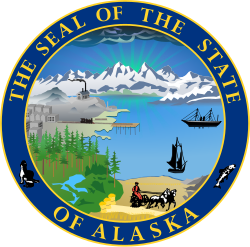| |||||||||||||||||
| |||||||||||||||||
 Results by state house district Young: 50–60% 60–70% 70–80% Duncan: 50–60% 60–70% | |||||||||||||||||
| |||||||||||||||||
| Elections in Alaska |
|---|
 |
The Alaska congressional election of 1998 was held on Tuesday, November 3, 1998. The term of the state's sole Representative to the United States House of Representatives expired on January 3, 1999. The winning candidate would serve a two-year term from January 3, 1999, to January 3, 2001.

